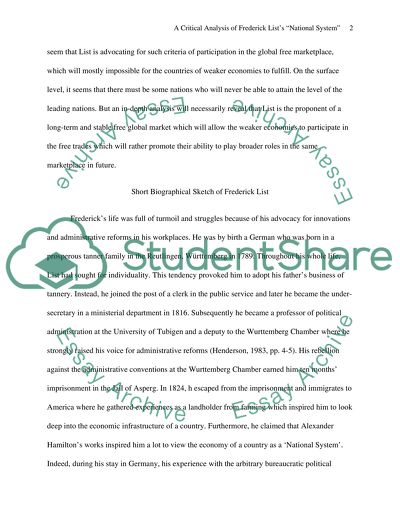Cite this document
(“Friedrich List Essay Example | Topics and Well Written Essays - 2500 words”, n.d.)
Friedrich List Essay Example | Topics and Well Written Essays - 2500 words. Retrieved from https://studentshare.org/history/1490969-friedrich-list
Friedrich List Essay Example | Topics and Well Written Essays - 2500 words. Retrieved from https://studentshare.org/history/1490969-friedrich-list
(Friedrich List Essay Example | Topics and Well Written Essays - 2500 Words)
Friedrich List Essay Example | Topics and Well Written Essays - 2500 Words. https://studentshare.org/history/1490969-friedrich-list.
Friedrich List Essay Example | Topics and Well Written Essays - 2500 Words. https://studentshare.org/history/1490969-friedrich-list.
“Friedrich List Essay Example | Topics and Well Written Essays - 2500 Words”, n.d. https://studentshare.org/history/1490969-friedrich-list.


